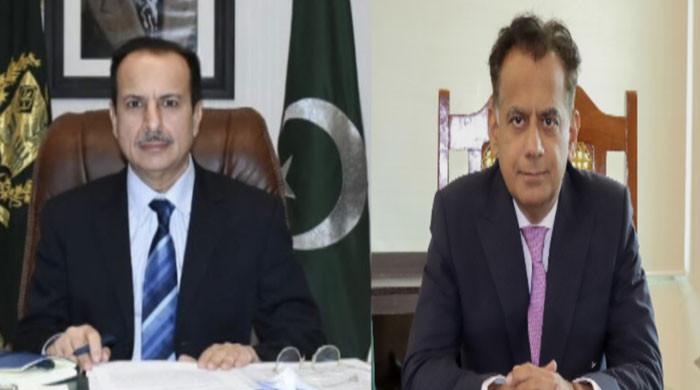Two-day moot aimed at devising strategy to deal with future pandemic preparedness, climate change and public health threats
Pakistan has taken an unprecedented initiative of hosting the first of its kind “Global Health Security Summit” (GHSS) in Islamabad.
The two-day moot on January 10-11 is aimed at devising a strategy to deal with future pandemic preparedness, climate change and emerging public health threats.
The Ministry of National Health Services Regulations and Coordination has invited delegates from more than 70 countries including from USA, UK, Brazil, Egypt, Indonesia, Malaysia and Sri Lanka to name a few.
At least, 34 ministers of health have confirmed their willingness to participate in the summit.
Representatives of international health and financial organisations like WHO, UN, UNICEF, CDC, USAID, WOAH and World Bank will also address the conference.
The delegates are expected to share their experience and knowledge about extreme weather conditions, climate change, vector-borne diseases and the one health collaboration.
In an era of pandemics, this conference is also aimed at galvanizing momentum for equitable preparedness. Hence, deliberations will be made about disease early warning system, epidemic alerts and surveillance.
The idea is to assign roles and responsibilities and give rights and privileges to every country, especially to low- and middle-income countries. So that vaccine equity is ensured, patents are deregulated and the transfer of vaccine manufacturing technology is made possible.
Moreover, the delegates will design a strategy for sustainable financing, including through pool funding, based on “equity for Global Health Security & access to Universal Health Coverage”.
The initiative is the brainchild of Caretaker Federal Minister for Health Dr Nadeem Jan.
Caretaker health ministers of all provinces have also played their part. Yet, the role of Secretary Health Iftikhar Shalwani and Director General Health Dr Muhammad Ahmad Kazi must be lauded for the meticulous planning of the summit.
This historic summit was earlier planned in December but due to COP28 UAE, it was postponed. However, Dr. Jan has become successful in rescheduling it in such a short time.
Dr. Jan said that by taking this initiative, Pakistan wants to develop a global pandemic charter. It will not only improve our country’s image but also develop the confidence of the international stakeholders in our health sector and its capacity to meet challenges of an unprecedented scale.
Dr Jan said that after the pandemic, countries normally pay little attention to the devastating diseases. However, Pakistan has taken the lead in alarming the world that the worst may yet to come.
He said, “No one is safe until everyone is safe. Virus doesn’t need a passport. It has a visa for every country. So, please protect your people”.
Secretary Health Iftikhar Shalwani said, “By effectively dealing with the 2005 disastrous earthquake and 2010 devastating floods, Pakistan has expressed its resilience”.
He went on to say that in terms of Covid-19, “We have done better than many European countries and now we want to stand up on our feet to eradicate polio and tuberculosis and cope with diseases like malaria.”
In her message, Ellen Mpangananji Thom, Office In charge, WHO Pakistan said that, “GHS is all about shaping our collective future for us and our generations to come and Pakistan has taken a bold step in that direction”.
Manchester-based Dr Abdul Hafeez who is the founder of Association of Pakistani Physicians and Surgeons of the UK proposed, “WHO should make it mandatory for all pharmaceutical companies to donate some percentage of their medicines and vaccines to the developing world”.
Dr. Hafeez, who has also served in Pakistan in various capacities, went on to say that “even 4% to 5% of their products will help significantly improve global health”.
Over the years, it is noted that health has also become interlinked with the national development and security of a country.
At the top of it, the increase in travel has made borders irrelevant and environmental catastrophes have turned health issues into a bigger threat.
Ali Munawar, a senior Pakistani American medical consultant said” “Irrespective of their preparedness, the COVID-19 pandemic has revealed the true impact of global health security on the national security of all countries”.
This is exactly why the Islamabad summit is being held under the slogan “Together for a Healthy Planet”. After the two-day deliberations on these challenges, a future global health security charter will be signed.
Currently, Pakistan is Chair of the Global Health and Security Agenda (GHSA).
This GHSA is a platform of nations, international organisations and civil society activists to make the world a safer place from the threat of infectious diseases.


